The rise of astrotourism: best stargazing holidays for 2024
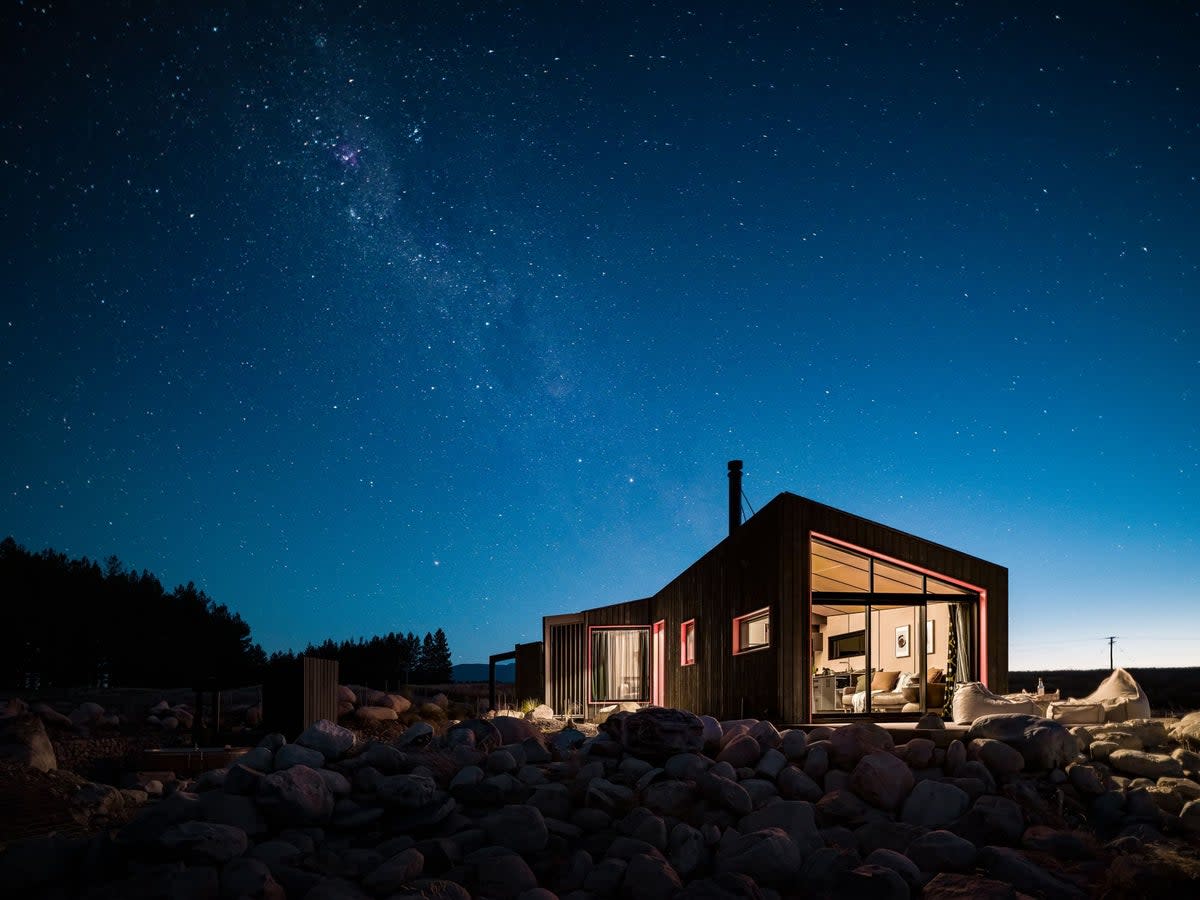
The rarest of holiday experiences these days? It’s not a five-star hotel or yacht hire. With an estimated 80% of the world impacted by light pollution, it’s escaping to a place where the skies are blanketed in stars.
‘We have seen an increase in people interested in dark sky tourism,’ says Susan Serven of DarkSky International, a non-profit organisation that seeks to protect our nighttime skyscape. ‘It’s good for people, good for economic development, good for the planet. It has positive impacts on wildlife, biodiversity and human health. It also maintains our human connection to the night sky, which every generation before ours has had access to.’
Serven says when dark skies are seen as a valuable natural resource – just like ocean or forest – remote communities can build sustainable tourism programs around it. And with the chance to get off the beaten track, support these communities and get a transcendent experience at the same time, holidaymakers seem to love it too. Nordic specialist tour operator Discover the World reports a 40% year-on-year increase in northern lights holiday enquiries, and Black Tomato has launched a dedicated eclipse collection for travellers keen to witness rare solar or lunar events.
And 2024 is looking like the year for astrotourism, whether you want a full-on themed holiday or just a twinkly overnight stay. Not only is the approach of the solar maximum promising the best aurora borealis sightings for 20 years, but a total solar eclipse is due on 8 April across swathes of North America. Throw in the annual Perseid meteor shower in August, a partial lunar eclipse on 18 September – and Dark Skies Festivals in the UK this month – and it’s time to turn eyes towards the heavens…
For remote luxury: Skylark Cabin, New Zealand
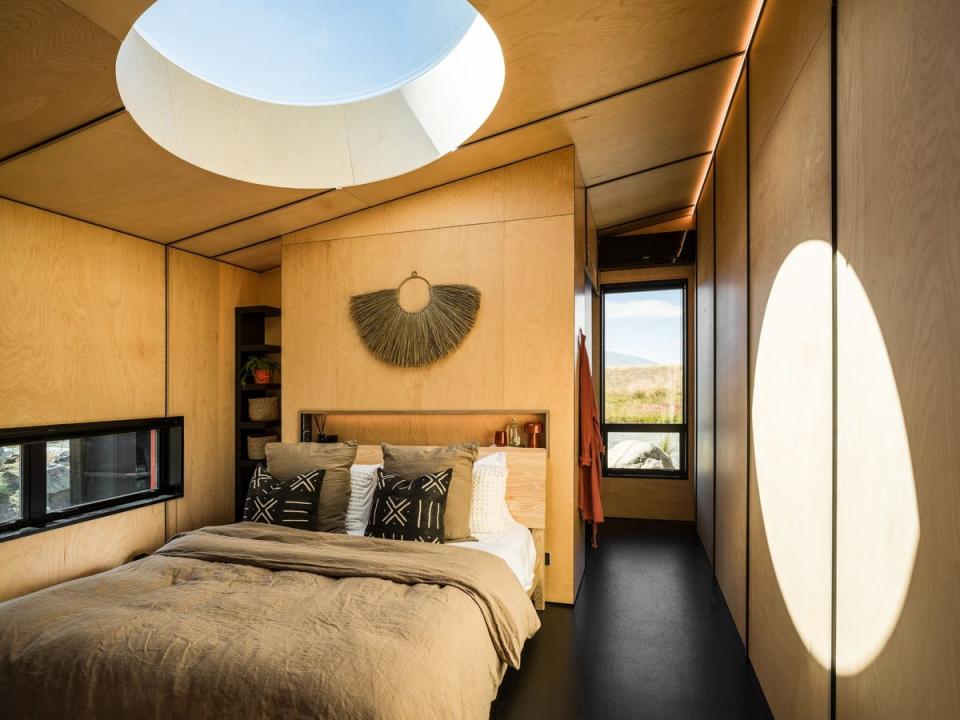
Ringed in snow-dusted mountain peaks and lined in tussock grassland, the South Island’s Mackenzie region is pretty spectacular by day. But come nightfall it really comes into its own, as the southern hemisphere’s largest dark skies reserve shimmers in a frothy sea of pin-prick stars. Among the 4,367 square kilometres of protected landscape nestles Skylark Cabin, a luxe, contemporary hideaway in glass and dark wood. After cooking up dinner in the cosy kitchen, take a twosome bubble bath in the alfresco tub and marvel at the celestial scene. Later, curl up in the king-sized bed – set strategically under a skylight – and observe the twinkling until you nod off.
From £390 per night, skylarkcabin.co.nz
For solar wonder: Texas Hill Country, USA
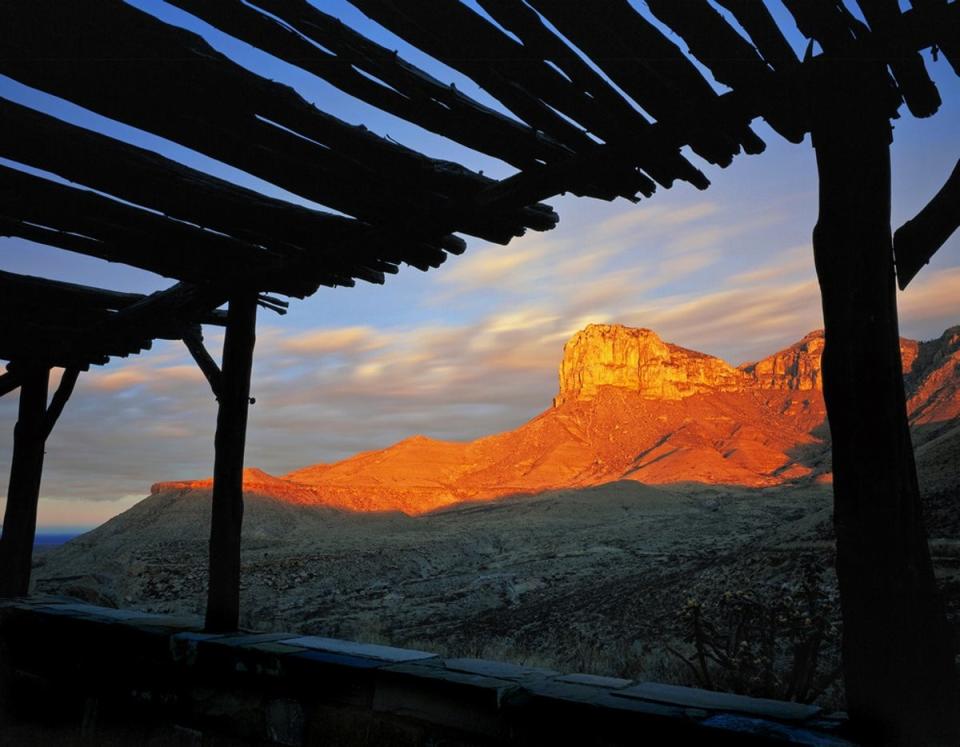
Thrilled by the idea of catching the rare total solar eclipse on 8 April? Black Tomato is offering a dedicated itinerary in one of the best spots to see it: Texas Hill Country. As well as getting to witness the big moment itself in scenic and stylish town Dripping Springs, outside Austin, you’ll get a lead up from 6 April with University of Texas astronomy professor lectures and an invite to a ‘star party’ with s’mores and stargazing (this bit of Texas is known for its dark skies, too). When you aren’t focused on what’s happening above, you can turn attention to the luxuries of your rambling hotel base: 1920s Italianate mansion-turned-hotel, the Commodore Perry Estate.
Three-night itinerary from £8,750 per person, blacktomato.com
For 360-degree panoramas: The Lookout Bubble, Kent
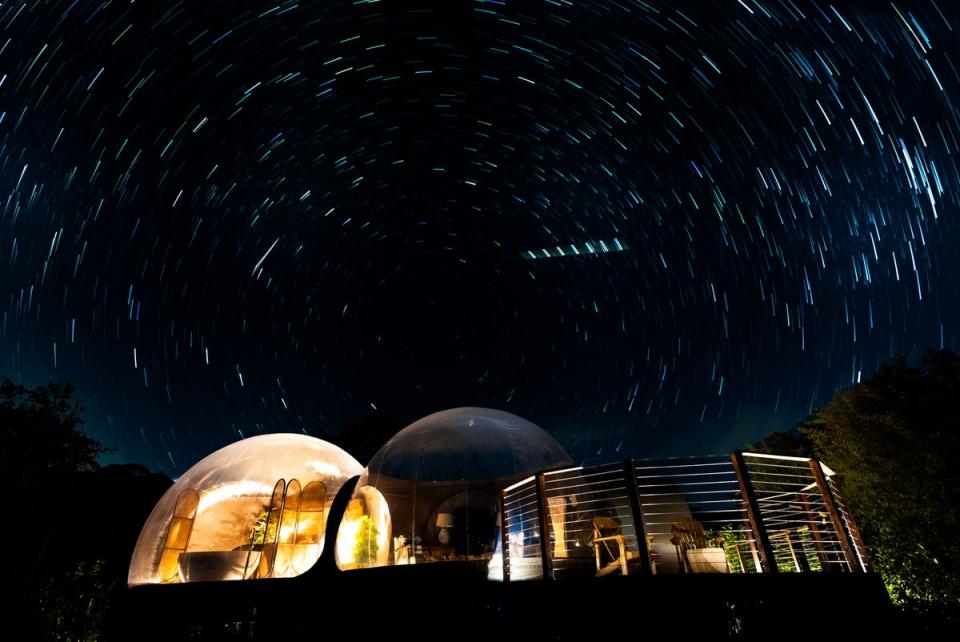
Enjoy your stargazing with a side of wildlife when you book into this recently opened glamping bubble in Kent. Days are spent exploring Port Lympne’s 600 acres of park space – home to free-roaming giraffes, zebras, camels and lions – either on hosted truck safaris or via your own golf buggy. Once the sun sets, you’ll get an unadulterated view of the night skies through the walls of your transparent home-from-home, fitted out with king-sized bed, plush seating area, soaking tub and toilet area (the latter, thankfully, is not transparent).
From £439 per night, aspinallfoundation.org
For the northern lights: Lapland, Sweden
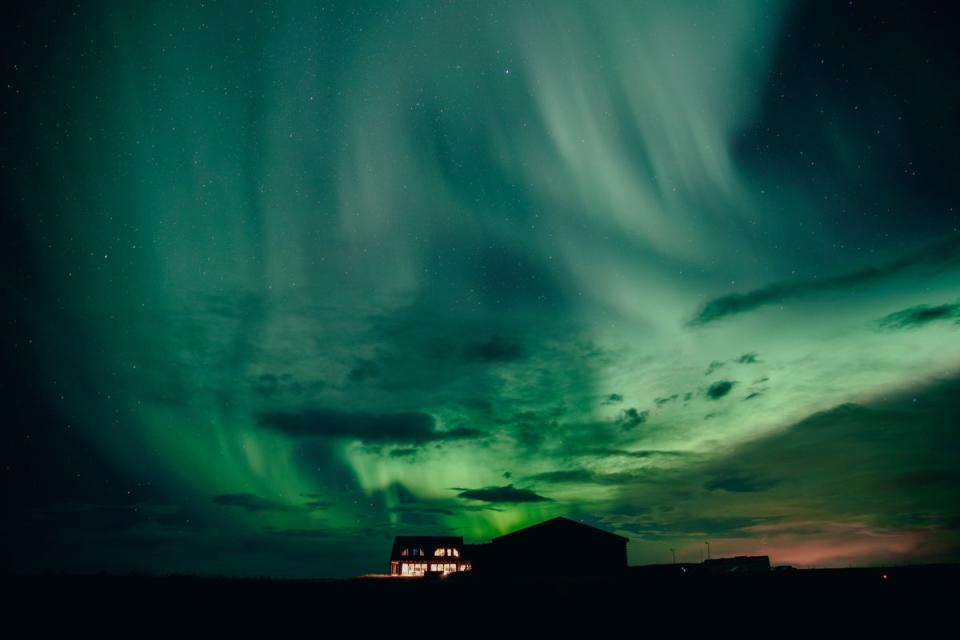
With 2024 and 2025 estimated to be the best years in decades for spotting the northern lights, now’s the time to book that night sky break in the wilds of Scandinavia. Regional specialists Discover the World have an extensive portfolio of trips, including a three-day Swedish Lapland adventure where you’ll stay in the world-famous ICEHOTEL, sample snowmobiling and husky sledding, and visit a sky station in the heart of ‘aurora country’. Winter wonderland vibes – drifts of pristine snow, afternoons spent by roaring fires – amp up the magic.
Three-night Northern Lights, Abisko and Icehotel itinerary from £919 per person, discover-the-world.com
For safari-style stargazing: &Beyond Sossusvlei Desert Lodge, Namibia
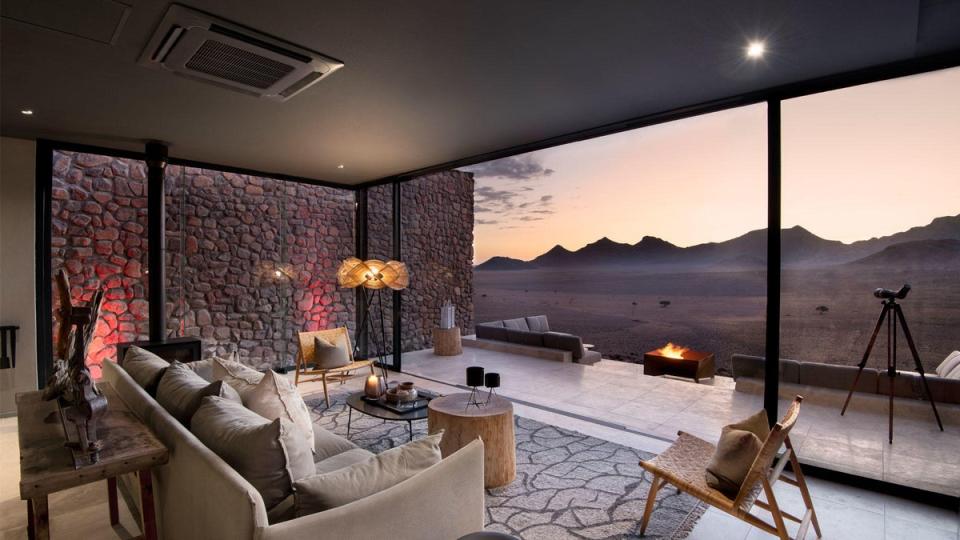
Rose Hipwood of The Luxury Safari Company says that, in search of a deeper connection with nature, guests are increasingly incorporating sleeping under the stars into their safari itineraries. With vast areas of minimal-to-zero light pollution, great stargazing spots abound in Africa – but the NamibRand Dark Skies Reserve has been awarded Gold Status for being one of the best. Luxe stay &Beyond Sossusvlei Desert Lodge is 140km from the nearest town and has resident astronomers, its own observatory with high-spec telescope, and suites with skylights over beds. Where better to witness the partial lunar eclipse on 18 September?
From £3,475 per night, theluxurysafaricompany.com
For group astronomy: Celestia, Brecon Beacons
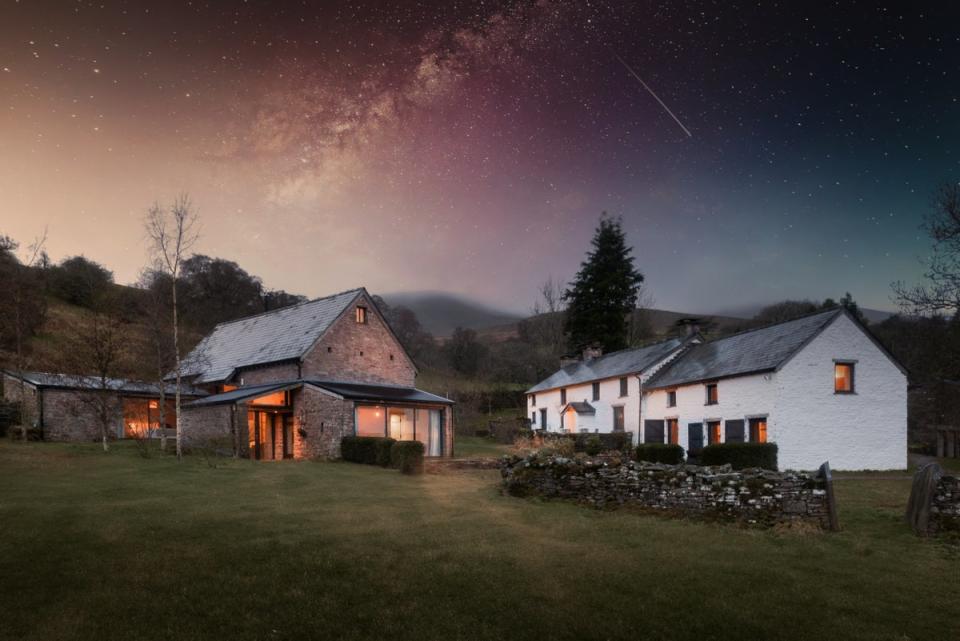
The Brecon Beacons is one of the very finest places in the UK to soak up the night sky, and if you want a stylish stargazing holiday for a group, Celestia – which sleeps up to 14 people – is the answer. Gather rather round the ‘stargazing bowl’ in the garden and muse over the constellations after a wine-soaked communal dinner. Once you’ve seen all the Dark Sky Reserve has to offer, you’ll get to bed down in cosy but contemporary cottage interiors, warmed by a wood-burner.
From £2,150 for a short break, uniquehomestays.com
For bragging rights: Six Senses Southern Dunes, Saudi Arabia
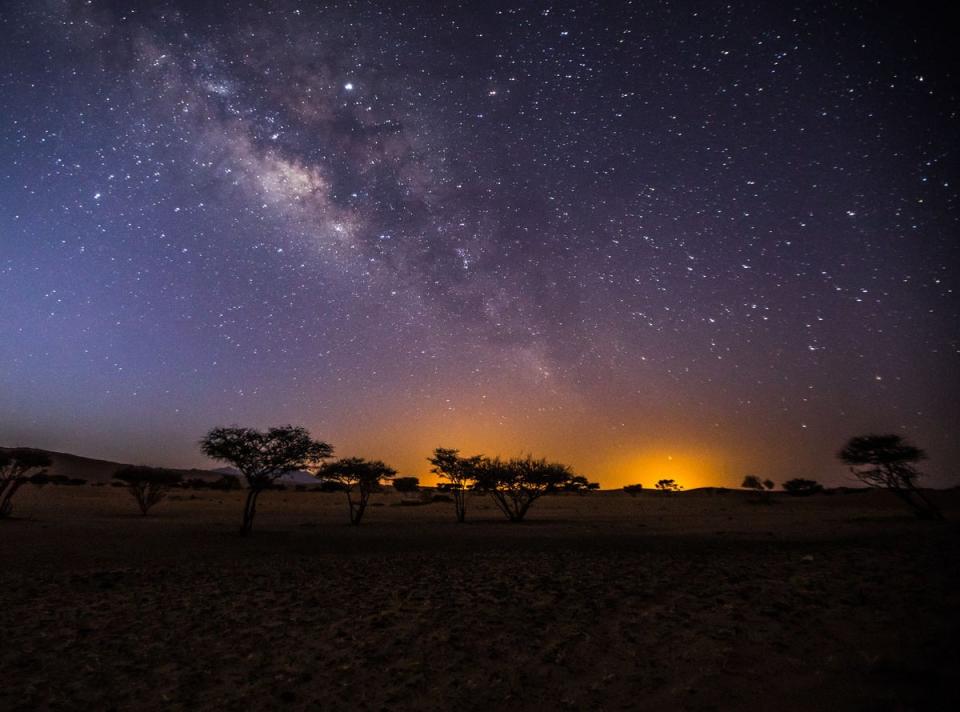
The Red Sea is already trending as one of the top places the 0.1% will travel in 2024. But it’s also appealing to would-be astronomers, as this remote enclave of Saudi Arabia has plans to become the world’s largest dark skies reserve. Take in the vistas from the recently opened Six Senses Southern Dunes, where an innovative light system shifts with the seasons and placement of the sun to ensure minimal impact on wildlife and the surrounding sandscapes. Desert stargazing excursions, astrophotography sessions, campfire storytelling and a wider immersion in local Bedouin culture are also all part of the deal.
From £1,050, sixsenses.com
For cultural immersion: StarDome Lodge, Peru
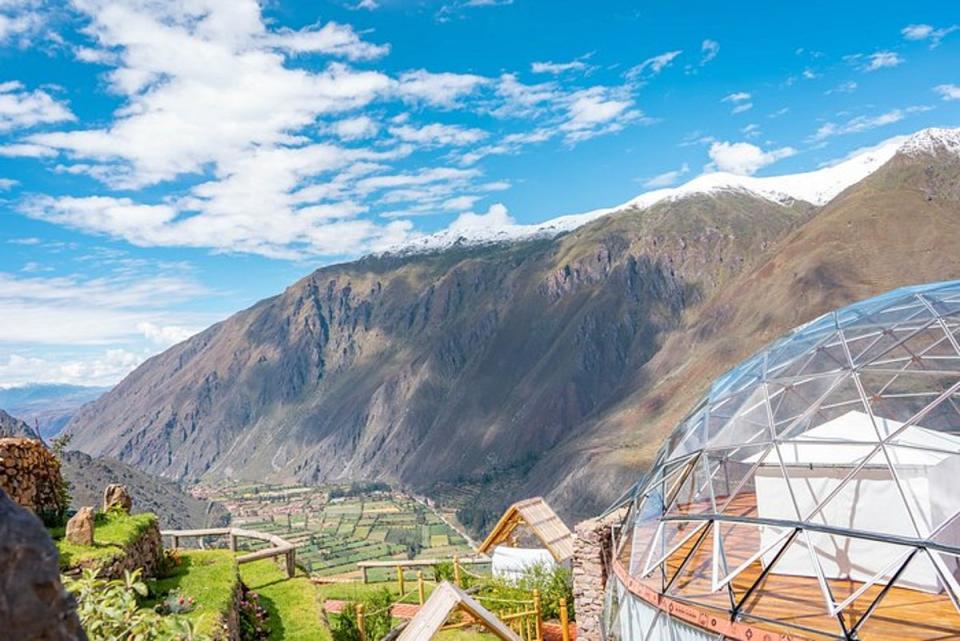
Squirrelled away in the lofty heights of mountainous Ollantaytambo, this unique window-lined dome hotel doesn’t just afford prime views of the night sky – but gives access to the region’s rich Quechua culture too. Traditional beliefs in Peru’s Sacred Valley are entwined with celestial observation, and when you sit out under the Milky Way with a local guide the heavenly scene takes on a whole new significance. During the day, meanwhile, your cultural education includes trekking, joining a spiritual ceremony or visiting epic Incan ruins.
Two nights from £380, stardomelodge.com
For astronomy on a budget: Starry Skies, Northumberland
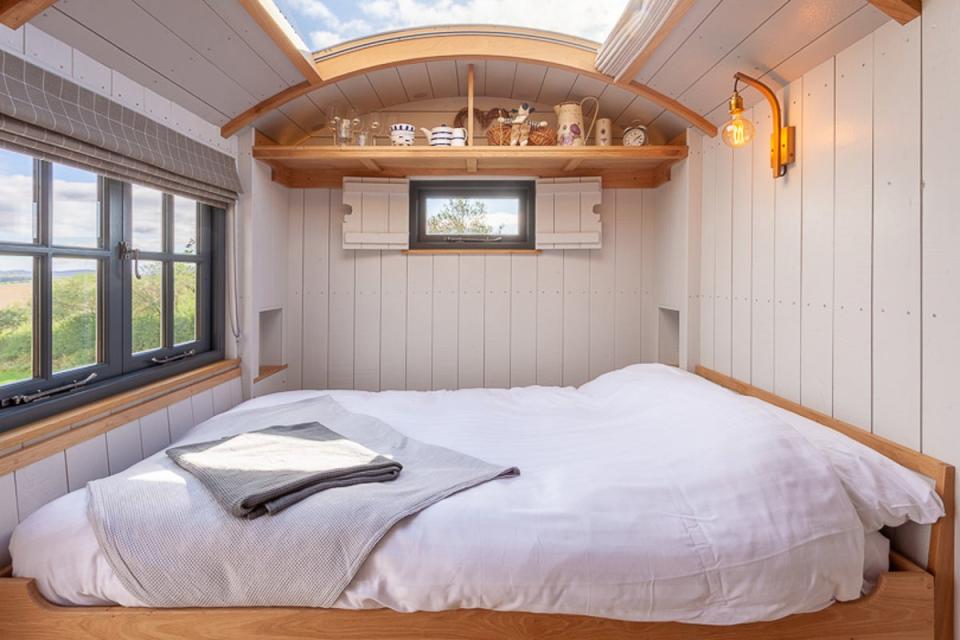
Stargazing is one of life’s free pleasures and you don’t necessarily have to spend a bundle to get a great show. Tucked in Northumberland’s International Dark Sky Park, these aptly named two-person shepherd’s huts are rustic in feel but still beautifully designed with reclaimed oak furnishings and Roberts radios in kitchens. And, plenty of windows to give you unobstructed views over field to the vast night skies. An alfresco soaking tub awaits if you fancy a bubble bath under the stars, or take it all in from a wood-panelled lounge loft area with telescope.
From £95, kiphideaways.com

 Yahoo Lifestyle
Yahoo Lifestyle 
